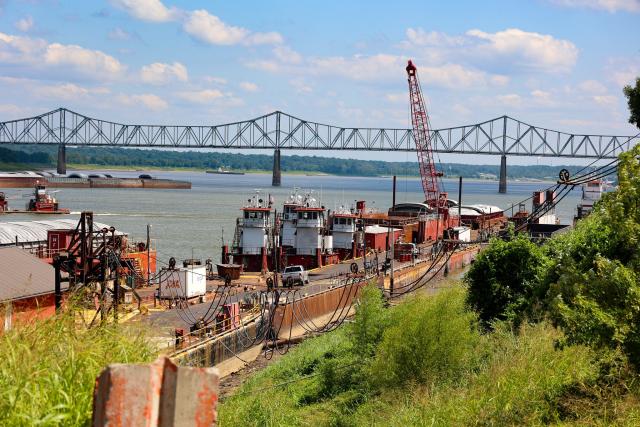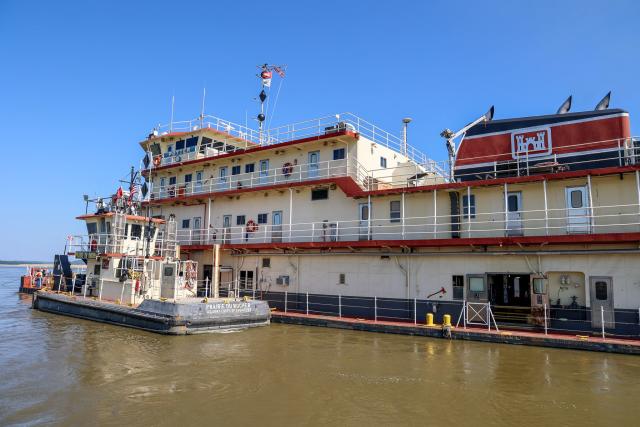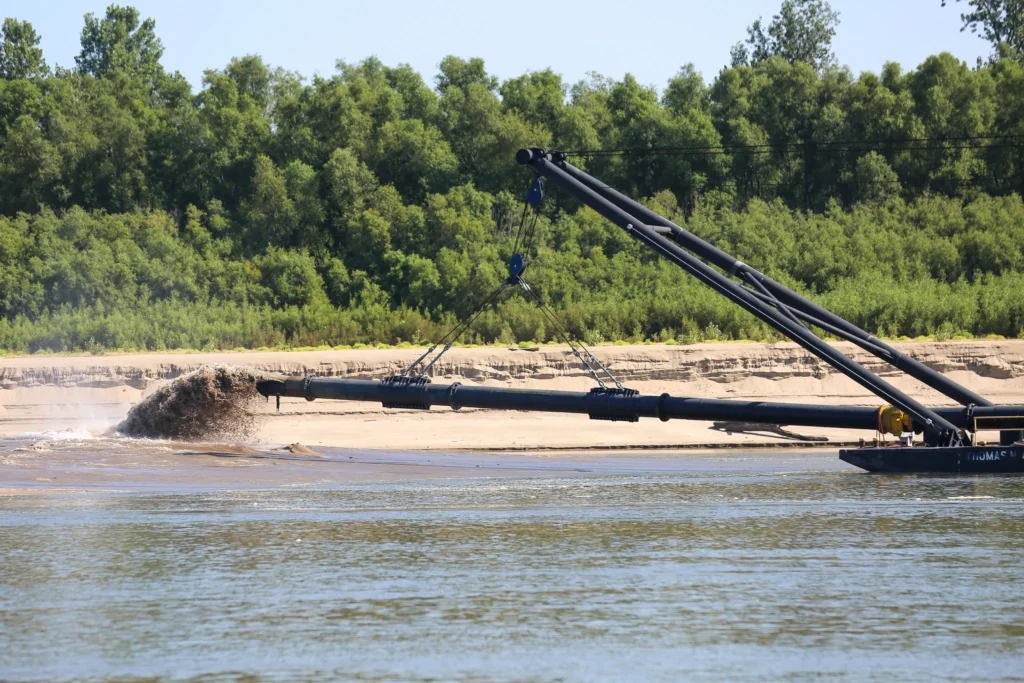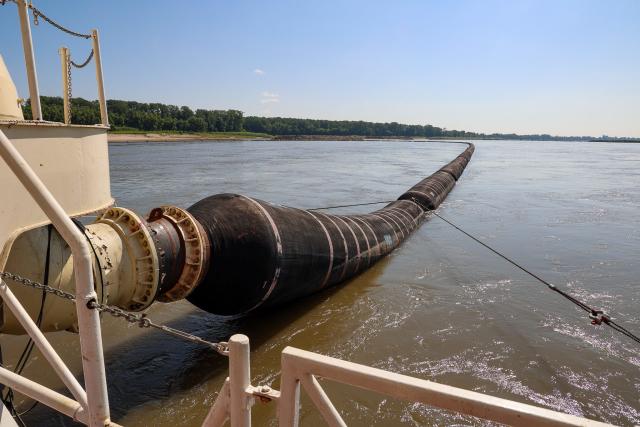Newsmatro

As the Midwest grain harvest season approaches, concerns are mounting over the water levels in the Mississippi River. The situation is reminiscent of last year when drought and low river levels caused significant shipping delays and economic losses.
The Mississippi River, a vital maritime highway in the United States, sees over 500 million tons of cargo transported annually via tow barges. The U.S. Army Corps of Engineers’ Dredge Potter, in operation for 92 years, plays a crucial role in maintaining a 9-foot-deep channel, ensuring the smooth flow of cargo.

Last year, drought conditions led to approximately 40 days of critically low water levels, resulting in grounded barges, traffic congestion, and an estimated $20 billion in losses. This year, the river’s water levels have been declining since June, raising concerns about a potential repeat of last year’s shipping woes.
With 61% of the Midwest experiencing abnormally dry or drought conditions as of late August, the National Integrated Drought Information System predicts that most of the Mississippi River will face low water in September. Rainfall in the right places and amounts is the only hope for averting this crisis.

Farmers who rely on the Mississippi River to transport their grains, particularly soybeans bound for international markets through New Orleans, fear another year of shipping disruptions and rising costs. Barge operators have already reduced their loads to navigate higher water, and 17 dredges are actively working to maintain the navigation channel.
Uncertainty about weather patterns and water levels is a constant concern for those living along the Mississippi River, which has experienced cycles of drought and flood. Short-term climate cycles like El Niño contribute to drier conditions this year, but the overall increase in extreme weather events and rising temperatures could lead to wider and more frequent fluctuations in the river’s water levels.
Towboat captains, farmers, and officials are closely monitoring river conditions, hoping for a more manageable situation than last year. Lessons learned from the 2022 shipping crisis, including improvements in navigation aids, have bolstered preparations. However, long-term solutions such as extending equipment at ports and fostering wetlands to hold water during dry periods are being considered to mitigate future shipping disruptions.

In Germany, low water levels in the Rhine River have prompted the shipping industry to design new barges capable of operating in such conditions. In the United States, experts predict that a warming climate will intensify existing cycles of flood and drought, making water levels in the Mississippi River even more unpredictable.
As the Midwest harvest season approaches, the pressure on river transport is mounting. Farmers are hoping for an uneventful year, while the Dredge Potter and its crew work tirelessly to maintain a navigable channel. Despite the challenges, the crew remains committed to their mission: keeping the river flowing for the benefit of the region’s economy.
The fate of this year’s harvest and shipping costs will depend on the unpredictable dynamics of the Mississippi River and the broader impact of climate change on the region’s weather patterns.